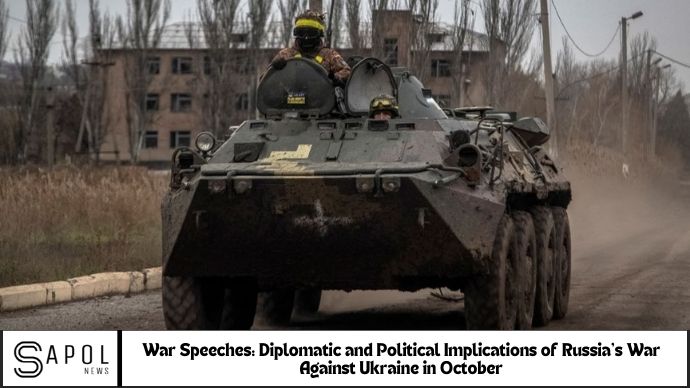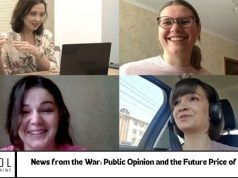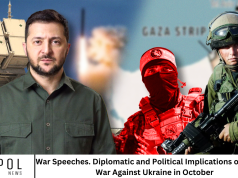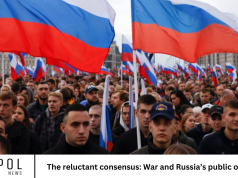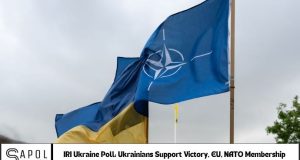War Speeches: Diplomatic and Political Implications of Russia’s War Against Ukraine in October October 2023 was a month marked by significant geopolitical shifts and foreign policy developments that could reshape the Russia-Ukraine conflict. Key events, such as a divided U.S. stance on further military aid to Ukraine, the rise of a pro-Russian government in Slovakia, Hungary’s continued pro-Kremlin alignment, and rising tensions in the Middle East, all point to a complex, evolving landscape that could influence the trajectory of the war.
However, despite these challenges, Ukraine’s military support remains steadfast, with a particular focus on bolstering air defense to protect critical energy infrastructure. Ukraine is also doubling down on efforts to bring about a just resolution to the war, continuing to promote its “peace formula.”
On the Russian side, there is no indication of a willingness to halt the invasion, as Moscow pushes forward with territorial expansion and attempts to reduce international backing for Ukraine. The Kremlin is betting on a prolonged conflict, exploiting global instability and Western fatigue over the war. This strategy aims to pressure the international community into decisive action to end what is seen as a major source of global instability.
In preparation for what is anticipated to be the “worst winter in history,” Ukraine is ramping up its defensive measures, particularly in the energy sector, while continuing to advocate for a global peace settlement. The latest developments signal a complex diplomatic battle, with significant implications for both the ongoing war and broader international relations.
The Power of War Speeches in Shaping International Diplomacy
Speeches by political leaders during wartime can be powerful tools, influencing both domestic and international audiences. In the case of Russia’s war against Ukraine, speeches serve multiple purposes:
- Justifying military actions: Leaders frame the war as a necessary defense of national security or a battle against perceived threats.
- Building morale: War speeches often aim to unite citizens under the banner of patriotism and national pride, increasing domestic support for the government.
- Shaping public perception: Through selective messaging, leaders seek to control how both their citizens and the international community perceive the conflict.
Russia’s War Rhetoric: A Tool for Maintaining Control
Russian President Vladimir Putin’s speeches have been central to maintaining domestic support for the war. In his addresses, Putin often frames the conflict as a defensive struggle against a Western-imposed “Nazi” regime, casting Ukraine as a pawn in a larger geopolitical battle. By invoking historical references and portraying the West as an existential threat to Russian sovereignty, Putin aims to solidify nationalist sentiment and justify aggressive military actions.
In his most recent speech in late September 2025, Putin reinforced Russia’s intent to expand territorial claims, even as international sanctions and diplomatic isolation mounted. His rhetoric suggests that Russia will not back down, positioning the war as an enduring effort to “protect Russian interests” while refusing to engage in peace talks that would require significant concessions.
Ukraine’s Strategic Use of War Speeches for International Support
On the other side, Ukraine’s leadership, particularly President Volodymyr Zelensky, uses speeches to rally both domestic and international support. Zelensky’s addresses often highlight the human toll of the war, portraying Ukraine as the victim of an unprovoked aggression, while emphasizing Ukraine’s resilience. By appealing to shared values such as democracy and freedom, Zelensky effectively garners international solidarity.
Furthermore, speeches by Ukrainian leaders serve as a call to action for the West, urging continued military assistance, economic support, and sanctions against Russia. For instance, Zelensky’s speech in October 2025 emphasized the need for increased air defense systems in preparation for anticipated Russian strikes against Ukrainian energy infrastructure.
The Role of Diplomatic Speech in Shaping Global Alliances
War speeches are not only directed at domestic audiences but also at foreign governments and international organizations. For instance, the statements made by leaders of NATO countries following their meetings with Ukrainian officials directly influence the diplomatic landscape. NATO’s public endorsement of Ukraine’s future membership, alongside pledges of continued military aid, plays a pivotal role in both deterring Russian aggression and bolstering Ukraine’s defense capabilities.
Speeches by leaders in the EU, the US, and other global powers also shape how sanctions are enforced and how international law is applied to Russia’s actions. The diplomatic impact of these speeches cannot be underestimated, as they influence everything from military support to economic measures aimed at undermining Russia’s ability to sustain the war.
Key Political Implications of War Speeches
The diplomatic and political fallout of war speeches is vast. Here are some key political implications:
- Influencing Sanctions: Political rhetoric often guides the imposition or tightening of sanctions on Russia, especially when leaders call attention to Russia’s violations of international law.
- Shifting Global Alliances: Countries are compelled to publicly align themselves with either Russia or Ukraine, depending on their strategic interests. War speeches are a major factor in these decisions.
- Impact on Military Aid: Speeches by Ukraine’s leaders play a crucial role in securing military aid from the West, with military support often directly tied to the rhetoric that frames the war as a fight for democratic values.
May you also like it:
War Speeches and Russia’s Lies About Ukraine, NATO, and Negotiations in January
Diplomacy Watch: Ukrainian Public Opinion More Divided Than Ever
Ukrainian Opinion Survey Tracks Fluctuating Views on Quick End to War
Conclusion
War speeches are much more than political tools; they are key elements that shape the course of international diplomacy. As Russia’s war against Ukraine continues to evolve, the rhetoric of political leaders will remain a central aspect of the conflict, guiding global responses, shaping alliances, and influencing the future of international relations. Whether used to justify aggression or rally support for defense, speeches will continue to play a critical role in the geopolitical dynamics of the ongoing war.
FAQs
1. How do speeches influence international diplomacy in the Russia-Ukraine conflict?
Speeches by both Russian and Ukrainian leaders frame the narrative of the war, influencing international support, sanctions, and military aid.
2. What role does Russian propaganda play in war speeches?
Russian war speeches often use propaganda to justify aggression, portray Ukraine as a threat, and rally domestic support for continued military operations.
3. How do Ukrainian speeches rally international support?
Ukraine’s leaders, particularly Zelensky, use speeches to highlight the humanitarian crisis, appeal for military aid, and emphasize democratic values.
4. What impact do speeches have on global sanctions against Russia?
Speeches by global leaders influence the imposition of sanctions by drawing attention to Russia’s violations of international law and urging economic pressure.
5. How do war speeches affect military aid to Ukraine?
Ukraine’s speeches are directly tied to securing military aid, with appeals for specific weapons systems and support often following key addresses.
6. Can war speeches alter the course of the conflict?
While speeches may not directly change military strategies, they significantly impact diplomatic efforts, public support, and the strategic decisions of global powers.

